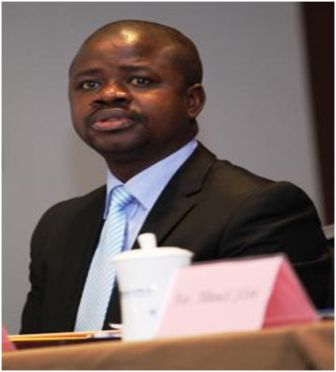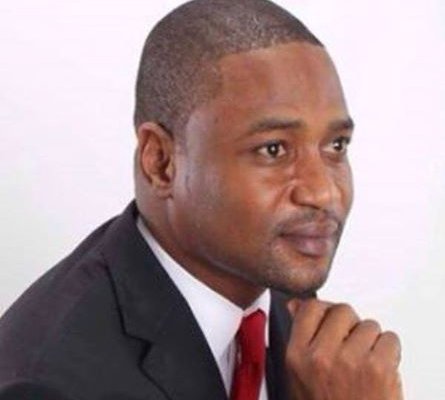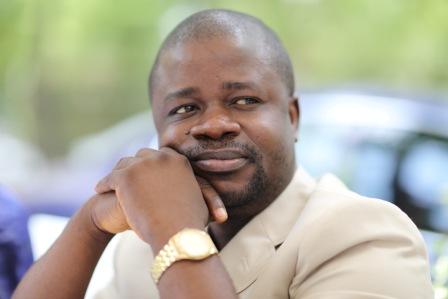Civil society’s untenable ultimatum
Governance is a process that calls for the collective involvement of people. Without the active participation of the governed, the governors will find it difficult to have a complete run of state affairs. This is always this synergy between the two, in any given state. But logically again, the masses have a moral and societal duty to support those elected to administer the affairs of state. Failure to do so would be interpreted to mean, an indirect display of disloyalty to the state machinery.
There often would be demands and expectations from the masses and in some cases through people who profess to take the podium on behalf of the masses-civil society. But in the process, giving unrealistic expectations may sound suspicious and in some instances, having disturbing undertones. The state (government) can’t be coerced into an unimaginable action by a certain few. In democracy, the will of the majority counts, though with the need to also listen to the minority. Sierra Leone continues to make progress in this direction.
President Ernest Bai Koroma’s government was elected on a popular and majority vote by Sierra Leoneans. By 2007, people wanted a change. This was after years of traumatic difficulties, with plethora of post war socio-economic and political challenges. The period, 1996-2007 was clearly a challenging one for even the operations of civil society groups, with less or no conducive atmosphere. Press freedom was in theory, with yearly killings of media practitioners.
But also, President Ernest Koroma election into office from an Opposition Party was necessitated as a result of contents in his blueprint for national development, the Agenda for Change. This document was later rolled over to an Agenda for Prosperity, which eventually led to his reelection in 2012. The prosperity document has laid the platform for the country to achieve a middle income status.
The 2007-2012 ‘change’ trajectory witnessed a stable macroeconomic environment in Sierra Leone, with an encouraging annual growth rate. We saw visible an expansion in the output of major sectors. The country also strengthened its governance mechanisms, with performance management systems introduced thus leading to an increase in public sector contribution towards country growth. The ‘Change’ path also led to effective measures, aimed at promoting transparency and accountability in governance, with the introduction of stringent laws in tackling corruption related offences, which was a landmark event in the sub region.
The need for overall public support to state operations and development initiatives cannot be overemphasized. If one is occupying the podium on behalf of the public, one should also be ready to be part of a nation’s development process. Rather than giving undue ultimatum to a government that got elected into office a year ago and from whom we now expect dozens of miracles be performed, we all, also owe it to ourselves to ask what we have done for the country we all call home. Running a Government is not like running a four room civil society office.
Sierra Leone is on the verge of moving to a middle income nation. This means a lot. President Koroma is providing the required leadership. But in just 12 months, we also not expect him do all what he had promise to do in 36 months. This is as unreasonable a demand as it is with the number of ultimatum given, given some people’s desire to see a complete implementation of components in the prosperity document, just in 12 months. It is understandable, that when a government performs, its people would expect more. This may be the case, given what president Koroma did in five years. But such expectations should be within reach and realistic and civil society should be aware of this.
As stated in the Executive Summary of the prosperity trajectory, Sierra Leone has a vision to become a middle-income country, “an inclusive, green country, with 80% of the population above the poverty line. It would have gender equality, a well-educated, healthy population, good governance and rule of law, well-developed infrastructure, macroeconomic stability, with private-sector, export-led growth generating wide employment opportunities; there would be good environmental protection, and responsible natural resource exploitation” This is not something that we can in a rush. Not in 12 months, but in decades.
The effective implementation of the laudable vision of a middle income nation needs not just ultimatum, but positive and realistic contribution by those issuing untenable taunts, in diverse ways. A nation with diversified economic growth; one that effective manages her natural resources; properly accelerating her human development with social protection; governance and public sector reform, coupled with great attention to gender and women’s empowerment is a nation that demands the obvious contribution of other state actors, to which civil society players are no exception.
President Ernest Koroma has obviously changed the country’s image. We today continue to receive dozens of trustworthy investors as a country; with many efforts embarked upon to ensure those pillars in the prosperity trajectory are realized in the coming years or decades. The government is elected for five years, with just 12 months covered. Majority of those who voted are thus satisfied with its performance thus far and they are optimistic that in the coming decades, we will reach the apex of development. We know there are challenges, but these untenable taunts are unwarranted for.
Stay with Sierra Express Media, for your trusted place in news!
© 2013, https:. All rights reserved.






